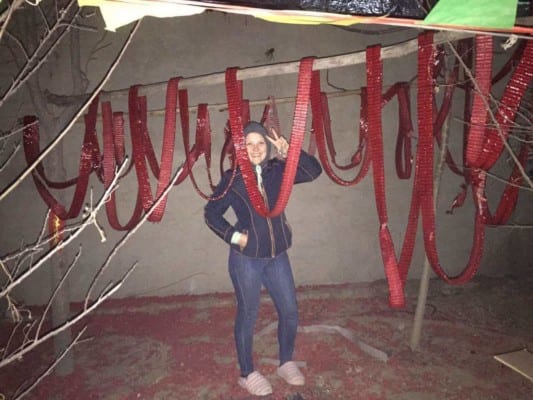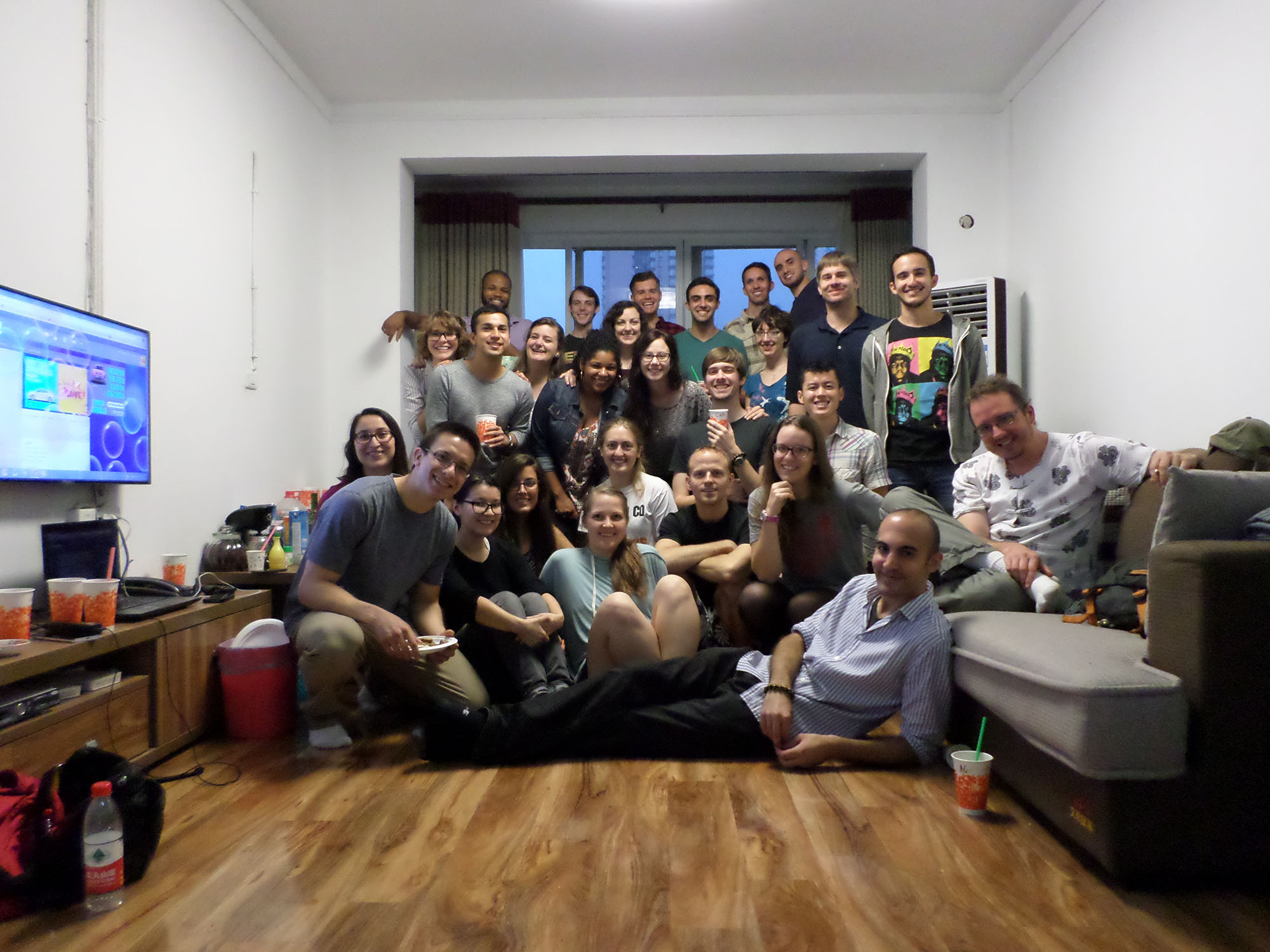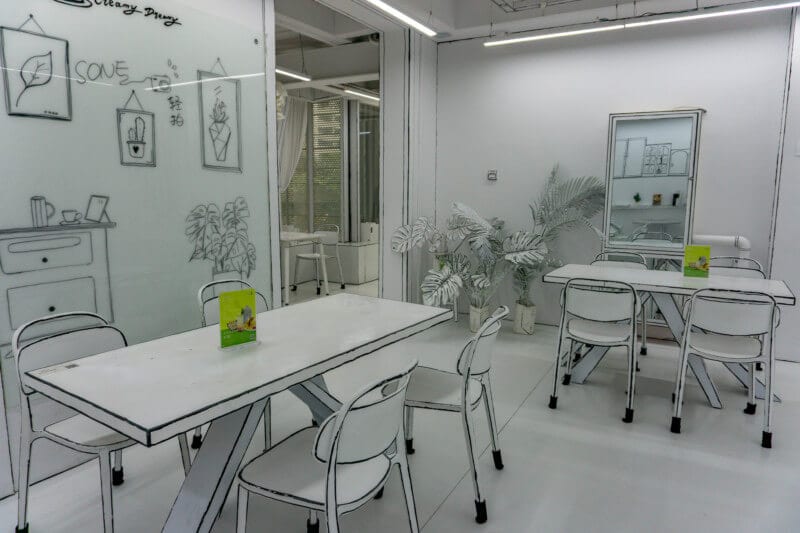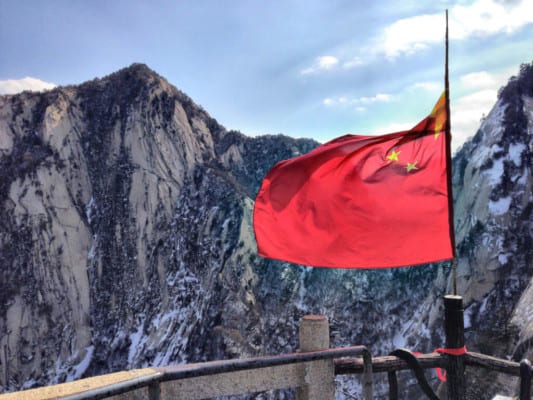My friend Shuai Shuai invited me to his hometown of Handan, Hebei to celebrate the Chinese Lunar New Year with him and his family. Any chance I have to see different parts of China is ok by me so I said yes.
Where is Handan, Hebei?
Handan sits on flat lands about 2 hours away from Beijing by the fast train and is well known for its industrial zone, meaning the air and the environment were particularly poor. I could see the environment was particularly dirty, piles of trash alongside the road and the air was thick with smog, but among all that was a shining sun.

I arrived the 6th of February. Before making the trip, I had bought a bottle of red wine to present to the family as a gift for inviting me to their home and to celebrate the Chinese Lunar New Year. This is a display of respect when first arriving at someone’s home. I carried the bottle in a bag along with apples to wish them good health as well. Upon my arrival in Handan, Shuai Shuai gave me a powerful hug, one that ripped the bag from my shoulder and onto the groundbreaking the bottle of red wine.
While driving, I was told we would be staying in their countryside house, which they said had some inconveniences because the water was non-functioning. They only stay in this house once a year to celebrate the Spring Festival together. The fact that I wouldn’t be able to take a shower in their house was a particularly large concern to them, but I assured them it would be fine and probably much like camping.
Staying In A Chinese Countryside Home
Their home was off the highway and tucked into a little community of countryside homes. Each home was one level complete with large doors opening up to display a spacious outdoor courtyard. From there, the house was complete with a kitchen, living area, and three rooms that connected to each other by doors. The bathroom was across the small courtyard, meaning to get from the living area, you had to go outside, not a problem in the summer, but the winter… The houses were separated by dirt alleys and at the front of the large doors, people had already replaced the dingy old red lanterns with bright new ones. They had decorated the doorways with the red couplets, one at the top of the doorway, one on either side of the door and two on each door opening to the courtyard. Shuai Shuai’s family had yet to place their couplets at the door of their home. It was at this home where Shuai Shuai introduced me to his younger siblings, 16-year-old Shuai Chuang and 14-year-old Shuai Wei.
Preparing For Chinese Lunar New Year
We woke up the next day in the late morning with much to do to prepare for the coming Chinese Lunar New Year. We put up the red couplets together. Shuai Chuang, with his incredible English, educated me on the rituals of placing the red couplets on the doorways. He told me that before tape was a thing, people would paste the couplets to the doorways using starch, a method his grandmother still practiced. Inside the courtyard, they placed red couplets around a picture of the three Earth and Sky Gods of the world, their people of worship during the Spring Festival. In front of the picture was a vase suitable for the burning of large sticks of incense. After putting up the couplets, we walked through the frozen dirt alleyways to grandma’s house to make dumplings.
Grandma’s house was much of an old style, one reluctant to change. Her home was a studio with a floor that was practically dirt, and she cooked all of her food on a small stove that had seen decades. Shuai Shuai’s mom and Shuai Wei had already been rolling dough and filling dumplings with savory meat all the while conversing in Handan dialect, a dialect I couldn’t begin to understand. Beside the stove were already cooked dumplings ready to be eaten. I helped roll the dough and fill the rest of the dumplings, stopping to eat two bowls of the salty and delicious ones already hand created.
Shou Sui, Fireworks, and Honoring Gods
After eating we returned back home to practice “shou sui,” a tradition of staying up all night to avoid the mythical “Nian” monster that would come out of its cave around the Lunar New Year. During shou sui, we watched the Chinese televised show full of fun performances to bring in the Chinese Lunar New Year.
When midnight rolled around, it was time to light the fireworks, another tradition practiced to bring in the New Year. During Lunar New Year, the myth was the explosions created by the fireworks would scare the Nian Monster into staying within his cave so he wouldn’t eat the people of the village. The fireworks were everywhere, sounding in the near and far distances of Handan. The pops were loud like canons and I felt I was in the midst of a war zone. Shuai Shuai and Shuai Chuang lit fireworks within the alleys and I watched each one pop into the air and spark.

After the fireworks, families will stay up to pray to the Gods, placing offerings of food in front of the alter to entice the Gods into bringing them, peace, luck, wealth, and good health in the next year. Apples, vegetables, and buns filled with red bean sat in front of the alter already smoking with incense. In front of the offerings, they burn fake paper money, a way of buying their good fortunes. After all offerings are made, all members of the family, starting with the oldest, get down on their knees and pray to the Earth, Sky, and Ghost Gods. They bowed three times, once to each God, ending the prayer with a wish. Once all prayers were complete, they lit a roll of firecrackers to chase away evil spirits.
Bai Nian and Paying Visit to The Elders
The next day, we carried on the tradition of the Lunar New Year. People woke up at five in the morning to make visits to homes in the neighborhood to practice another tradition known as “bai nian.” Bai Nian, is a tradition in which people visit homes of their elders to pay respects by getting down on their knees. The alleyways were filled with the dark facades of those journeying to their neighbors. Only the married men would practice this tradition. I watched from the inside of Grandma’s living room, standing upon people’s entry to pay their respects. Baijiu and cigarettes were lined on the table as offerings to those paying their respects. Once the bai nian was finished, the men would go to the graves of their ancestors to also pay their respects.
I spent a lot of the time quiet and unable to understand most the conversations happening around me, except when the young and wise Shuai Chuang was in my presence and ready to translate. I had grown to really adore this young man and Shuai Shuai’s family. A few days later, they paid for my plane ticket back to Chongqing and I left with a heavy heart and longing for the Lunar New Year experience to continue on. How you can connect so much with people when a language barrier is strongly present continues to be a mystery to me. I felt their generosity, their kindness, their hospitality in hosting an illiterate stranger and it reminded me of just how lucky I was and how little time I had left in China. There is a small chance I would return here, a small chance of coming to a point where I was able to communicate with fluency. I felt entirely too blessed and entirely too saddened by these truths. I knew I would never forget this experience with Chinese Lunar New Year as long as I lived.

For more fun stories like this on China, check out my travel story to Sanya, Hainan.





1 Comment